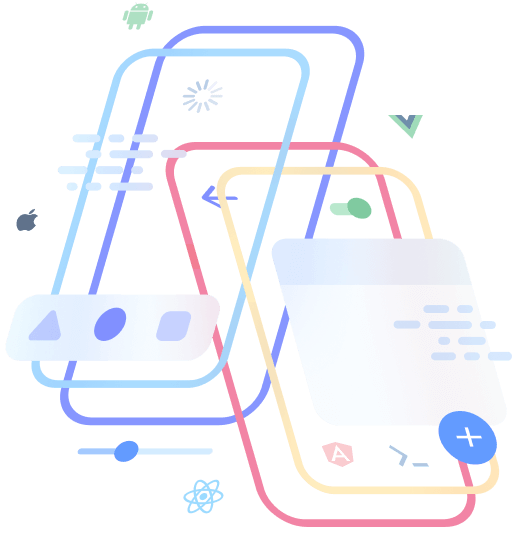Native Mobile Apps Development for Better performanceConsistent lookSecurity
QUICK ENQUIRY
Mobile Apps Development
What is native app development?
Unlike websites and web applications, native mobile apps don’t run in the browser. You need to download them from platform-specific app stores such as Apple’s App Store and Google Play. After installation, you can access each app by tapping its respective icon on the screen of your device and it will be done because of app development.
Native app development or mobile apps development requires different skills and technologies than mobile website development. You don’t have to worry about browser behavior and compatibility. You can use the native features of mobile OSs to deliver the user experience and implement the functionalities of your app.

What are the benefits of native mobile app development?
Better performance
Native mobile apps directly interact with native APIs without depending on middleware such as plugins and WebViews. As there are fewer dependencies, native mobile apps are faster and more responsive than hybrid apps. This is especially important for performance-centric apps like games and graphic-heavy applications.
This can be done with the help of a good mobile app development company that has vast experience in app building which can perform mobile application development fluently and Solidale Infotech is one of them.
.
Consistent look and feel
As native mobile apps are developed using native SDKs (software development kits), their UIs look consistent with their platform. This ensures a better user experience, as there are no discrepancies between the OS and app design.
Immediate access to new features
Native mobile apps can immediately access the latest iOS or Android features. As web technologies can’t directly use native APIs, hybrid apps have to wait until there’s a plugin that supports the new feature.
Better compliance with app store guidelines
Because of their architecture, native mobile apps comply better with app store guidelines. In 2017, Apple restricted its submission guidelines. Since then, they have begun to reject apps that rely too much on WebViews, such as Ionic View that allowed developers to test their Ionic applications. As it’s likely that app stores will continue cracking down on hybrid apps, native mobile apps are also a more future-proof investment.
Native app development for Android
You can develop native Android apps in Java, Kotlin, and C++ programming languages. Google provides you with advanced Android development tools, such as:
1. Android SDK (software development kit) bundled with Android Studio, the official IDE (integrated development environment) for Android,
2. Command-line tools for Windows, Mac, and Linux.
3. Firebase, a comprehensive mobile development platform.
4. Android Jetpack, a collection of pre-made Android components
Native app development for iOS
You can create native ios apps in Objective-C or Swift. Unlike Android, the iOS operating system has closed source code, created exclusively for Apple’s hardware. So, you need a Mac device to develop native mobile apps for the iOS platform.
Apple has many excellent tools and resources you can use for iOS development, such as:
1. iOS SDK integrated with the Cocoa Touch UI framework.
2. XCode, the official IDE for iOS development.
3. Swift Playgrounds, a learning platform for Swift development.
4. TestFlight, a beta testing app.
Native app development frameworks
Although native mobile app development has multiple advantages, it’s not a simple process. Many companies lack the skills and resources to build native mobile apps from the ground up. Native app frameworks allowing cross-platform development appeared as a response to this problem. They are different from hybrid frameworks like Ionic or Cordova, as they don’t use WebViews for UI rendering.
Instead, native app development frameworks allow you to build native components using popular web technologies that they compile to native mobile code. For instance, you can create React Native apps with React.js.
 WhatsApp
WhatsApp Call
Call